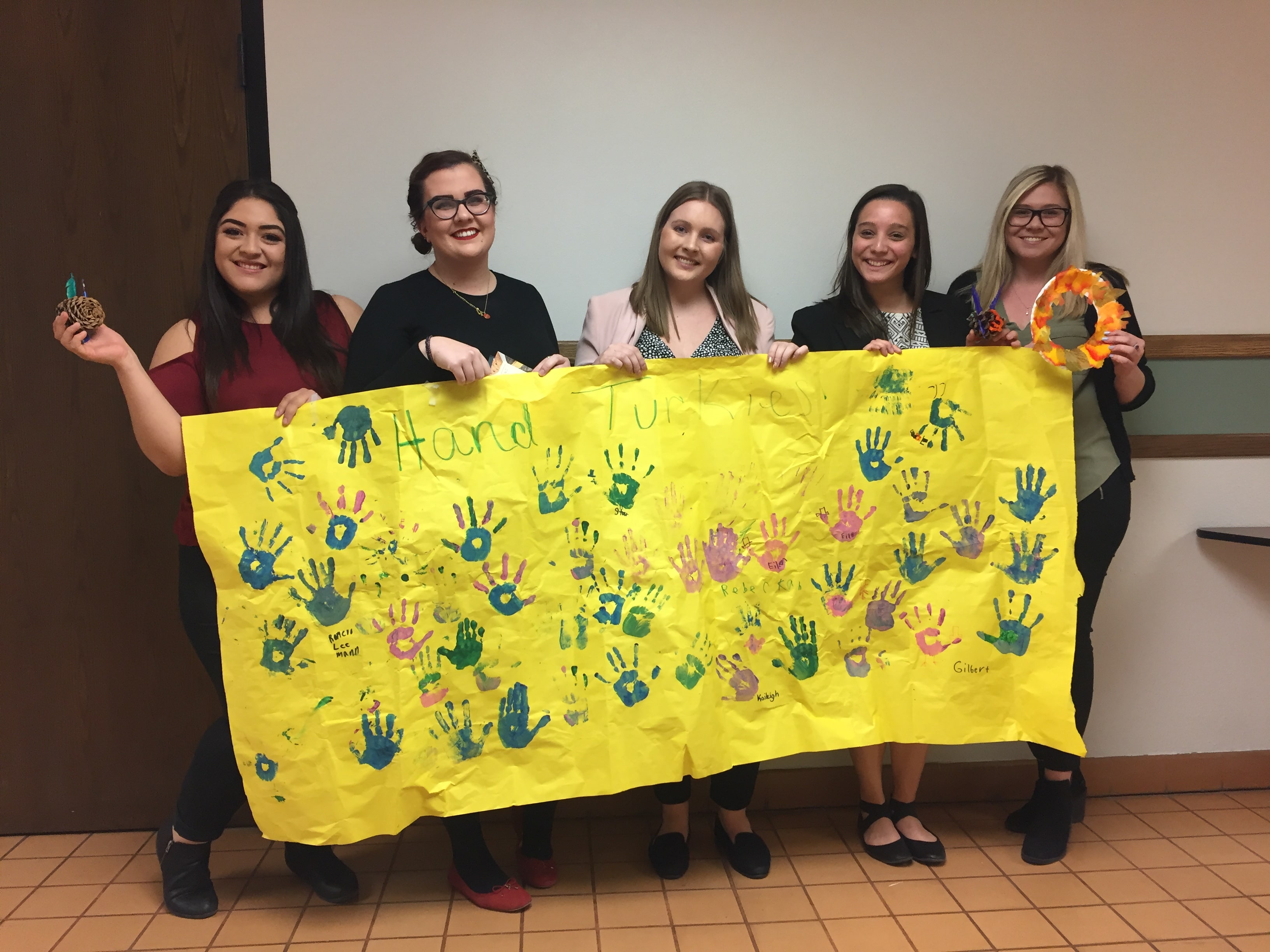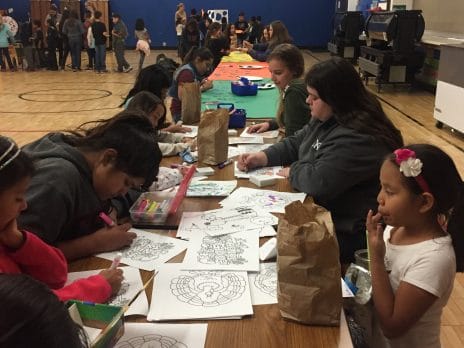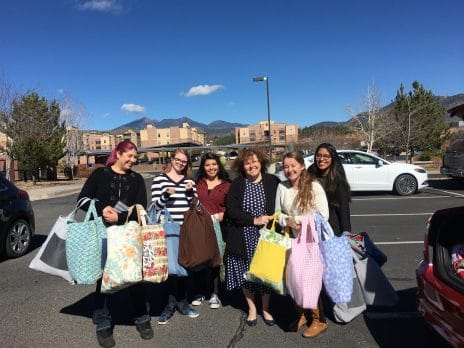
Each fall semester, senior social work students enrolled in SW 423 are asked to partner with a community organization to create a project that impacts a minimum of 25 clients. Students address client needs identified by both the student group and the professional representative from the organization. This semester’s cohort completed 15 projects, and secured donated services or monetary donations exceeding $18,000 in support of their work.
Students applied skills learned in prior courses to community change projects achievable in 12-13 weeks. This allows them to “see” macro-level social work practice through an applied approach, and engage in the processes that are required in larger change projects. This type of macro engagement is something the students will continue to do once they are working in professional organizations, and will prepare them to lead macro level projects which will be an asset to many non-profit organizations and their clients.
We thought we’d let the students tell you about their work in their own words:
Operation Killip Carnival
Ashley Darr, Crystal Piedra, Karina Nyberg, Marissa Herington, Alex Kriska
 When first discussing ideas, we knew we wanted to do something that centered around Thanksgiving. Crystal works with the Killip Elementary School FACTS program, which is an after-school program in the Flagstaff school district. Killip is in a community in Flagstaff that has a lower socioeconomic status, and we figured we could give out Thanksgiving food bags to help take some stress off of those in need. We also decided to also hold a carnival at Killip for the children to attend.
When first discussing ideas, we knew we wanted to do something that centered around Thanksgiving. Crystal works with the Killip Elementary School FACTS program, which is an after-school program in the Flagstaff school district. Killip is in a community in Flagstaff that has a lower socioeconomic status, and we figured we could give out Thanksgiving food bags to help take some stress off of those in need. We also decided to also hold a carnival at Killip for the children to attend.
We held the carnival on November 17th at Killip elementary from 12-4pm, with crafts, games, face painting, and even the fire and police departments showed up. We passed out 25 Thanksgiving food bags to families in greatest need. We received amazing feedback from all the FACTS team and the kids, and both have expressed hope that we will come back to do similar events.
We all learned the impact that macro change can have, and we learned how hard you have to work to make that change effective. The kids inspired us from the beginning, and our desire to help them fed our motivation when we did face challenges or struggles. The most rewarding part of this process was getting to see the kids’ excitement and joy at the carnival. Our project is now inspiring the Social Work Student Association at NAU to continue doing similar events at Killip in the future.
Collaboration with CUDDLE and CASA
Marti Martin, Cheyenne Villanueva, Jennifer Torres, Alee Kopp, Ashley Hall

Our team was inspired to create macro change, specifically within the lives of foster parents and children ages 0-5 years old. We partnered with Best for Babies and CASA for Kids of Coconino County, to promote a panel and discussion event to educate foster parents about local resources and to gift infant and toddler bags to each individual who attended our event.
As a group, we decided on specific items that would be beneficial for securing the immediate needs of infants and toddlers in the child welfare system. In the beginning, there was a concern that we “bit off more than we could chew”, because we wanted to provide an abundant amount of products to our foster and kinship families. These concerns did not affect our ability to fundraise and advocate on behalf of this deserving population, though, and our event went better than expected. You could say that we “bit off just the right amount”!
We were able to fundraise $741.00 in monetary donations and $2,850 in in-kind donations. We made connections with organizations within Coconino County. We overcame challenges with resistant donors, the confidentiality needs of the population we served, and the absence of a panel speaker at our event, and we learned a lot about working as a team to create macro change. It takes a village to achieve community advocacy.
As the faculty member who teaches this class, I remain excited about the student learning that emerges from this assignment. These projects can be challenging, and students learn much about what resources they bring to their work through self-reflection. We’ll close with some statements from members of this cohort:
“I often doubt my skills or fear that my natural inclination for leadership will come off too strong or pushy, so I try to hide it…. Being encouraged in my leadership was a much needed boost for me to keep moving forward with that skill.” Remington.
“[The serenity prayer] was my dad’s favorite prayer. I say it when I need his help. This prayer helped me through this semester. It helped me push through to see this project succeed” – Anonymous Student
“You have to know why you’re advocating personally, in order to advocate well.” Marissa
This semester’s projects included collaborations with: